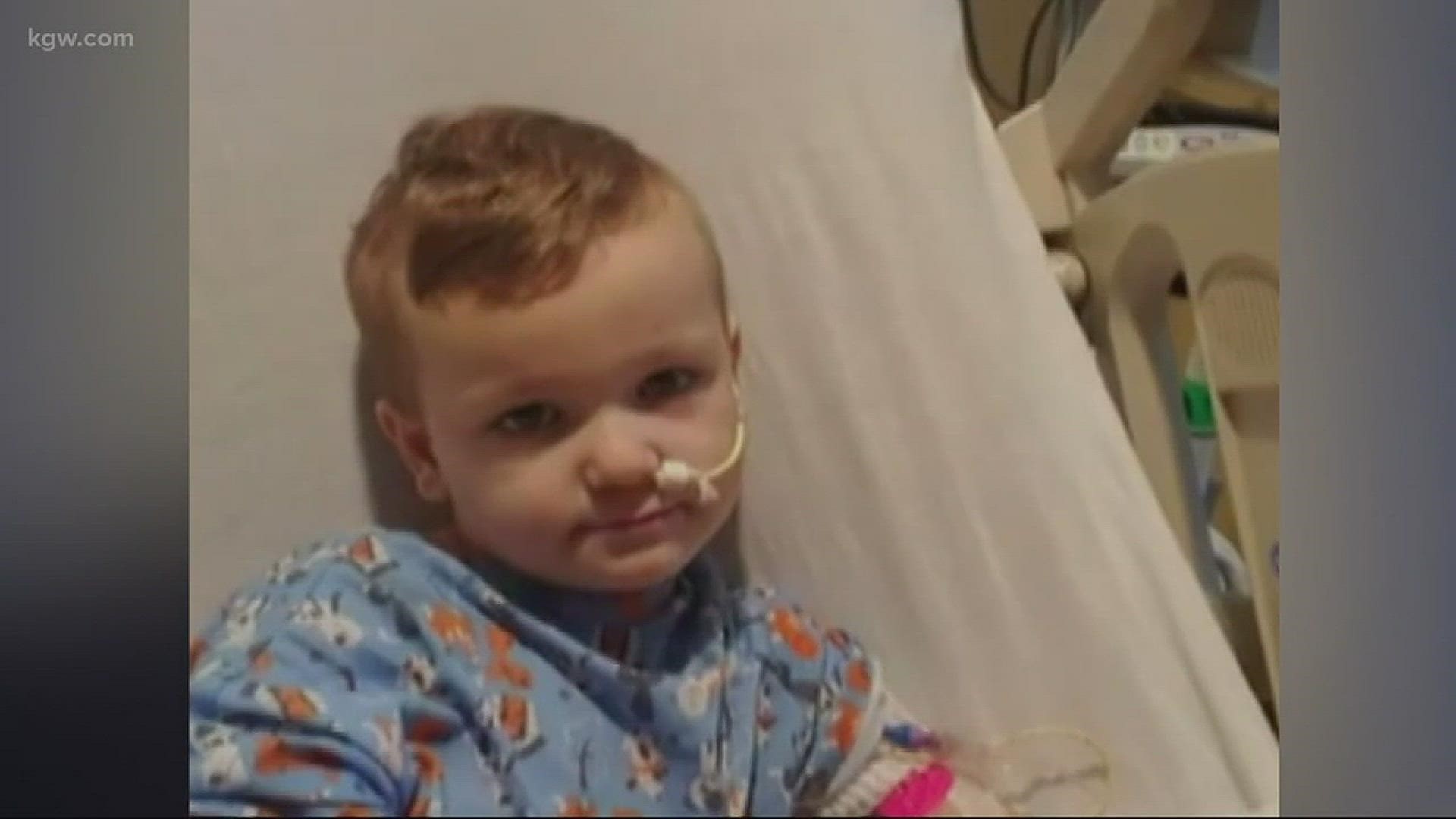From phony funerals to fake cancer, there is a dark side of crowdfunding that can turn generous donors into victims of fraud.
It makes Phillip Rainey sick to even think about.
“Where is their mind to think that’s okay? I would be livid,” said Rainey, whose 5-year old son is recovering from a rare flesh eating bacteria.
Rainey turned to GoFundMe to cover medical bills and other expenses after his son Christopher spent 18 days in a Portland hospital.
“I got to thinking about how much it costs to be in the hospital. It’s not cheap,” said Rainey. “We have insurance, but there’s still a large percentage that we will have to cover. So will I refinance my house or am I going to have to be looking at bankruptcy?”
For Rainey crowdfunding is a lifeline, while others see that opportunity as an open door to deceive.
Consider the case of Amie Welch, who, along with her husband, claimed she had stage-three cervical cancer.
“I would call her a liar,” said Chief Ray Garivey of the Freeport Police Department in Texas.
Garivey said Welch went so far as to shave her eyebrows and hair. He said no charges were filed after she gave some of the donations back.
“It was fake, the people were false, they were fake, they were fraudulent,” Garivey said. “The whole thing was made up.”
Cases like these are the focus of the website GoFraudMe, founded by outspoken blogger Adrienne Gonzalez.
“This is happening. It's happening a lot. It's happening in your backyard, it's happening in mine,” Gonzalez said.
Her website tracks bogus crowdfunding campaigns nationwide and breaks the fraud down into categories.
“Funerals are a big one — animals, children, anything that's, like, extra sob-story meant to tug at your heart. I just — people need to be careful,” Gonzalez said.
How can you be careful? Try doing what Gonzalez did with “Sprocket,” the dog supposedly with degenerative disk disease.
“So you put the photo into Google images at images.google.com, and Google will tell you that image appears here, here, here and here,” Gonzalez said.
After doing that, Gonzalez said Sprocket was “100 percent stolen off the internet.”
Other cases GoFraudMe has followed include the Minnesota man who was arrested for faking cancer, allegedly to raise money to smoke marijuana and play video games.
There also was the campaign seeking donations for Jared Aguilar's funeral, even though he wasn’t dead.
“I'm alive and well, guys,” Aguilar said.
In 2014, West Linn Police shut down an online fundraising scam. The GoFundMe page was supposed to help raise money for a West Linn High School student. She died along with a classmate in a car crash. Police say a total stranger set up the campaign to cash in. The money was returned to donors.
“I think people need to be really, really careful after any tragedy,” Gonzalez said. “Every time something bad like that happens, these people come out of the woodwork.”
A GoFundMe spokesperson called bogus campaigns “unfortunate and rare,” saying they represent less than one tenth of one percent of all campaigns. The company also said it investigates claims within 24 hours, makes refunds to donors and guarantees donations for intended recipients who never received any money.
In a series of e-mails to KHOU, GoFundMe would not answer questions about the total number of fraudulent campaigns, the total amount refunded, or the number of cases under its “GoFundMe Guarantee.”
The apparent lack of transparency makes the founder of GoFraudMe skeptical.
“I wouldn't be sitting in this chair if it was that rare,” Gonzalez said.
For Rainey and his family, any measure to better police crowdfunding fraudsters can’t come soon enough.
“You know there’s a special place for those people,” said Rainey.
KGW's Kyle Iboshi contributed to this story.

